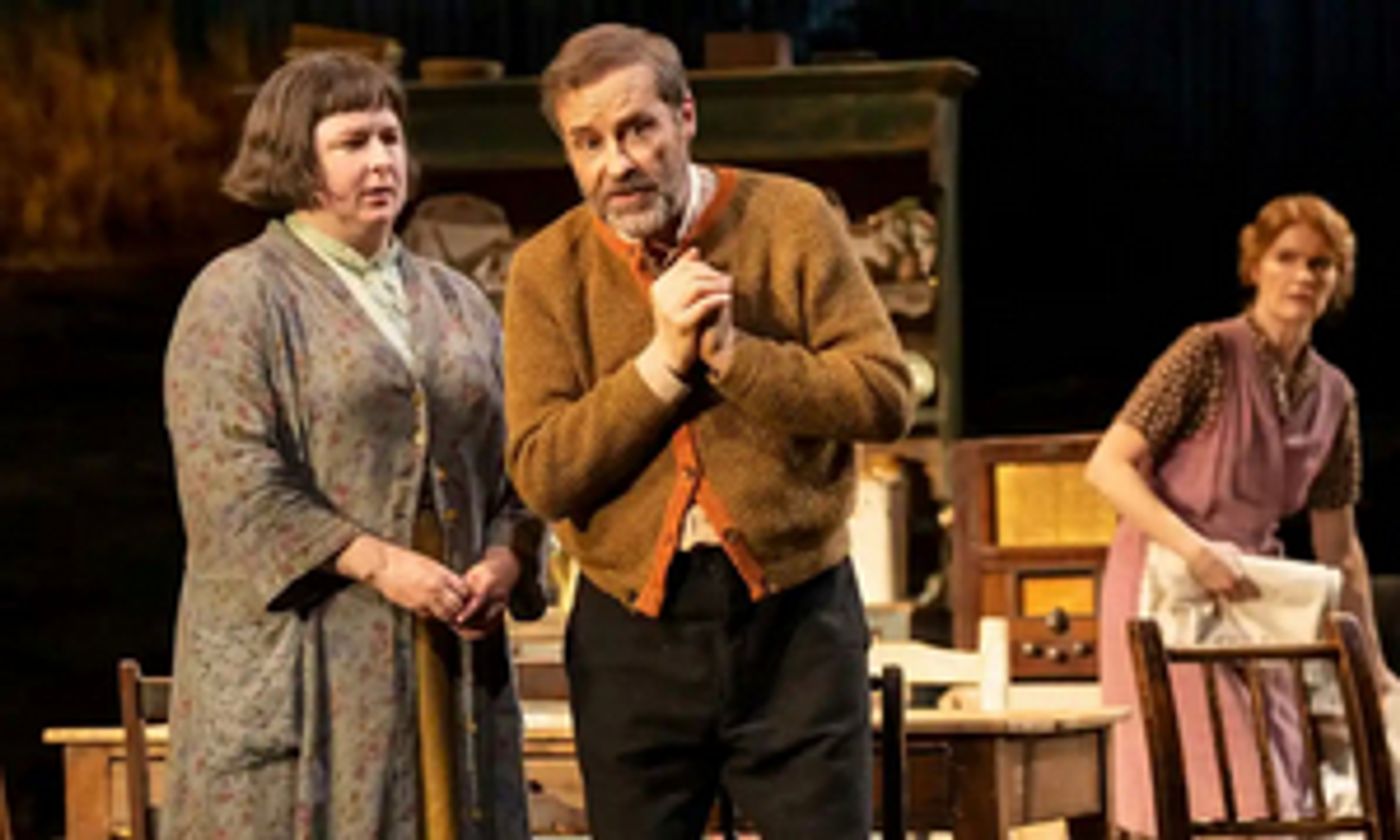Review Roundup: What Did the Critics Think of DANCING AT LUGHNASA?
Josie Rourke directs this striking revival at the National Theatre

Harvest time in County Donegal, 1936. Outside the village of Ballybeg, the five Mundy sisters battle poverty to raise seven-year-old Michael and care for their Uncle Jack.
During the Festival of Lughnasa, Pagan and Christian meet and collide. The sisters fight each other, love each other, dance, yearn and survive. Brian Friel's Olivier Award-winning play is an astonishing evocation of a family's world on the brink of change.
Josie Rourke directs this striking revival of Dancing At Lughnasa, with a cast including Siobhán McSweeney (Derry Girls), Ardal O'Hanlon (Father Ted) and Tom Vaughan-Lawlor (Translations).
The show is now open: what did the critics think?
Gary Naylor: BroadwayWorld: The performances are excellent, Siobhán McSweeney catching Maggie's wit and wisdom and Alison Oliver visibly aching with delight as Chrissie whenever Tom Riley's dandyish Gerry appears on the horizon. It was a brave, but misguided, decision to cast Ardal O'Hanlon as the lapsed priest, Father Jack. I tried to empty my mind of his unforgettable previous incarnation as a priest, but the voice brought it back - again and again.
Arifa Akbar: The Guardian: Movement lies at the emotional heart of this play and it is orchestrated with such delicate mastery by Wayne McGregor that the stomping scene, featuring the sisters dancing with wild abandon is a shared hedonistic escape, rebellious ritual and act of worship in one.
Sam Marlowe: The Stage: Mitchell - acid-tongued, authoritarian, secretly overwhelmed - is terrific, as is Siobhán McSweeney as big-hearted, quietly observant joker Maggie, so often an uncomplaining sponge for her sisters' pain. But this is a true ensemble piece, crammed with eloquent detail: the choking disappointment of Louisa Harland's lonely Agnes, the wide-eyed sweetness of Bláithín Mac Gabhann's Rose, the exasperating charm of Riley's Gerry, the child-like marvelling and bewilderment of O'Hanlon's Jack. It is a production of piercing lyricism as well as embracing warmth and wit: gorgeous.
Sarah Crompton: WhatsOnStage: Rourke's production is alert to their physical proximity and constriction; they literally fall over each other as they try to fulfil their daily tasks, they peer through imaginary windows when Gerry arrives, they make a circle around the troubled and troubling Jack, who stops them folding their washing as he recites his stories of Ugandan rituals.
Nick Curtis: Evening Standard: 30-plus years on, the script's juxtaposition of pagan liberation and austere repression in Ireland and the wider world feels slightly overdone. Though Robert Jones's costumes are terrific, his prettified set unhelpfully recalls The Wizard of Oz. But otherwise, this remains a powerfully moving evocation of time, place and atmosphere.
Fiona Mountford: iNews: The beating heart of the action in Josie Rourke's increasingly powerful production lies in scenes of deceptively uneventful domestic detail. These five women, all confronted by limited social, romantic and economic opportunities, chat, laugh, bicker and make a simple supper, in a routine that is fast running out of battery life much like the wildly unreliable radiogram in their kitchen.
Clive Davis: The Times: It's hard to take either of the men seriously. Ardal O'Hanlon gives a solid performance as Jack, but the character - who remains out of sight most of the time - seems too neatly contrived. Tom Riley's Gerry, a jolly cove who talks of signing up for the International Brigade in the Spanish Civil War ("Everybody says it will be over by Christmas") might have wandered out of a Wodehouse novel.
Dancing At Lughnasa is at The National Theatre until 27 May
Photo Credit: Johan Persson
Reader Reviews

Videos

